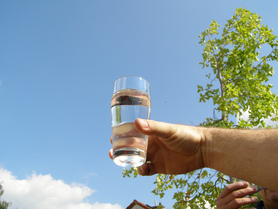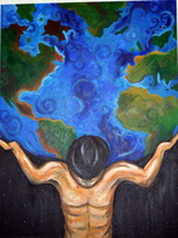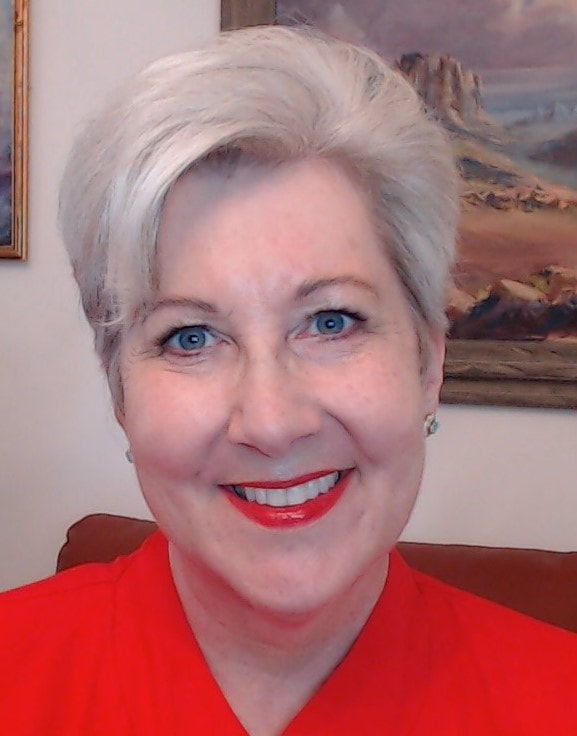|
3/12/2013 Putting down that heavy fear Last week a story popped up several times on my Facebook page. It involved the variable weight of a glass of water, depending on how long you hold it, and illustrated the importance of dropping burdensome ruminating and old fears. After doing an internet search to track down the source, I came across a slightly different version of the same story used in an essay by Prakash Iyer, Managing Director at Kimberly Clark Lever and an Executive Coach, on the website www.Careers360.com. I am not one to reinvent the wheel. I really want to share the glass of water analogy with you and Mr. Iyer handled both the story and the message it teaches really well. In requesting permission to repost his essay here in full, I happily agreed to link to his website and to mention his recent book, "The Habit of Winning, - full of inspiring stories to help you change the way you think, work and live. Judging from this essay, I think his book is worth a serious look.  Prakash Iyer: Life lessons from a glass of water! Not worrying too much about the problem is the first step to solve it. by Prakash Iyer A chemistry professor decided to teach his students a different lesson one day. Holding a glass of water in his hand, he asked the students, “How much do you think this glass of water weighs?” “500 grams!” came a voice from the back. “600,” said another student. “I don’t really know!” said the professor, holding the glass up to make sure everyone could see it. “And unless we weigh it, we won’t know.” With the glass still in his outstretched hand, the professor continued, “What will happen if I hold it like this for a few minutes?” “Nothing!” came the reply. “Right, and if I hold it for an hour like this, what might happen?” “Your hand will begin to hurt,” said a student. “Indeed. And what would happen if I held the glass in my hand like this for 24 hours?” “You would be in tremendous pain,” said one student. “Your hand will probably go numb,” said another. “Your arm will be paralysed and we’ll need to rush you to the hospital!” said a student on the last bench.  “True,” said the professor. “But notice that through all this, the weight of the glass did not change. What then causes the pain?” The class went quiet. The students seemed puzzled. “What should I do to avoid the pain?” asked the professor. “Put the glass down!” said a student. “Well said!” exclaimed the professor. “And that’s a lesson I want you to remember. The problems and worries in life are like that glass of water. Think about them for a while and nothing happens. But think about it a bit longer and they begin to hurt. And if you think about them all day long, you will feel paralysed – incapable of doing anything. It’s important to remember to let go of your problems. Remember to put the glass down!” We may not have been in that classroom that day, but it’s a lesson we would all do well to remember. Put the glass down! Always.  It’s not just problems and worries. Sometimes, we feel hurt and betrayed by a friend. And we carry that grudge through our lives. It grows and causes us anguish and pain. Learning to forgive – and forget – is not just good for the other people, it’s great for you. Nelson Mandela spent 27 years in jail and when he was finally freed, you can understand how angry and vengeful he must have felt. But guess what? When he became President, he invited his jailers to be present at the inauguration – in the VIP seats! If he could forgive after 27 years of suffering, surely we can, too. It is the same with our fears, too. A failure or an incident in early childhood becomes a deeply entrenched fear over time. Fear of public speaking, fear of Maths, fear of rejection. You name it, and chances are, we have it. Someone gave us that glass to hold when we were little kids – ‘you are clumsy, you are no good, you can’t do it’ - and we have faithfully held on to it all our lives. ‘I can’t’ - becomes a thought that stays in our mind and grows – leading us to complete paralysis. Time to put the glass down! The story goes that there was a hardworking man who lived a contented life with his wife and children. Every evening when he returned from work, he’d follow a ritual. Outside the door to his house were three nails. On the first one, he’d put his hat. On the second he’d hang his coat. And on the third nail, he’d unwrap an imaginary turban from his head and ‘put’ it there. A friend happened to see this and enquired what he was putting on the third nail every day. “Those are my problems, my worries and my anger,” said the man. “I have lots of that at work, but when I come home, I remember to take it off – and leave them outside. I don’t take them home with me.” Maybe you should learn to do that too. Starting today. Put the glass down. And see the difference! This essay first appeared on www.Careers360.com on May 6, 2011. Prakash Iyer is Managing Director at Kimberly Clark Lever and an Executive Coach. For more inspiring life lessons, read Mr Iyer's new book The Habit of Winning. To be sure you don't miss something,
you can have new posts delivered to your email inbox. Simply subscribe in the sidebar. And if this post is meaningful to you, it may also help others. Please share! You may also wish to: VISIT MY WEBSITE HOME PAGE FIND LINKS TO MY OTHER PUBLISHED CONTENT LISTEN TO A COLLECTION OF MY "YOUR DAILY LIFT" 2-MINUTE PODCASTS
Katie Brotten
3/12/2013 02:00:17 am
I love this! Resonates with some experiences in my life. Thank you!!! 3/12/2013 03:49:44 am
Me, too. In fact, I have been so focused on getting this message ready for blog readers, that I didn't pay attention to what it was saying to ME. So as I reread it to respond to you, i realized I had what was feeling like a 500 lb glass of water in my hand that I should put down. So I did. My prayer today is to empty the glass and any other receptacles I might be tricked into using to hold onto hurt (like memory, the body, documents, photographs, stuff in the house) and to watch that I don't collect and hold onto this or any others.
Mary Hough
3/12/2013 07:20:20 pm
This is very powerful. It really spoke to me on so many levels. Thanks for sharing...
nancy
3/12/2013 06:27:19 am
3/12/2013 07:05:00 am
Touching and so helpful. The hurt doesn't define you. The memories don't define you. The experiences themselves don't define you. God, good, love, humility, forgiveness - define us all. Thank you for sharing.
Kris
3/12/2013 07:42:38 am
Michelle, this is another way of saying Let Go and Let God, isn't it? I have always loved the story of Jesus raising Lazarus from the dead. Somehow I don't think Lazarus spent his days after that experience ruminating about the death process before Jesus arrived. Don't you think Lazarus just rejoiced and rejoiced and rejoiced! Wonderful story, and a great blog to send out into the world today! Thanks so much, Michelle for expanding on this one!
Béatrice
3/12/2013 12:38:48 pm
How I needed this message today!
vicente joven
3/16/2013 10:24:03 pm
it is just a matter of letting go all the things not known to God.it is knowing more and more of our coexistent relationship with God alone and thus know our relationship with man and the universe.thank you very much michelle.love bong
Julie
4/1/2013 02:37:16 pm
This showed up on my Facebook newsfeed today. What a great message. I'm putting it into practice right now! Thank you! Comments are closed.
|

Find me on YouTube
I have practiced Christian Science professionally in some form since 1979. But my journey with Christian Science started in a Sunday school where as a young child I was taught the Scriptures and some simple basics of Jesus' method of scientific Christian healing. A significant experience at the age of twelve opened my eyes to the great potential of this practice. After impaling my foot on a nail, I prayed the way I had learned in Sunday school. Within moments the pain stopped and healing began. By the next morning the wound had disappeared completely. Having experienced the great potential of Christian Science, there would be no turning back. |
INFORMATION |
SERVICES |
HELP |
© 2011-2024 Michelle Boccanfuso Nanouche, CSB. All rights reserved. Pages updated July 1, 2024.

 RSS Feed
RSS Feed
